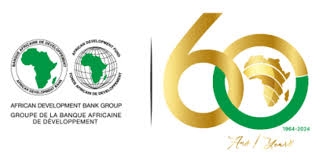The nexus between integration, trade, and Africa’s sustainable development took centre stage at the launch of the 11th Edition of the Assessing Regional Integration in Africa (ARIA XI) report in Malabo, the Equatorial Guinean capital recently.
During the launch, African Development Bank Group (AfDB) and its institutional partners made a compelling case for accelerating the African Continental Free Trade Area (AfCFTA) and pushing decisively toward a continental customs union and a common market.
The report is themed: : “Delivering on the African Economic Community: Towards an African Continental Customs Union and African Continental Common Market.”
Africa’s integration is no longer a lofty ideal, but an urgent necessity—and a development pathway the continent cannot afford to delay, said a release by the AfDB.
Joy Kategekwa, AfDB’s Director for Regional Integration, emphasised that integration is the only viable route to meaningful industrialisation and broad-based economic empowerment on the continent.
“Africa’s integration is a development pathway of necessity, and with that in mind, all of us sitting at this table are called to reflect… Can we afford the price of failure?” she asked, challenging the continent’s leaders to take concrete steps toward building a unified economic bloc.
Kategekwa stressed that while the AfCFTA marks significant progress, its current legal framework as a free trade area is limited in scope.
“The AfCFTA itself, being a free trade area, does not give us the legal answer to how we deal with third countries—those outside the agreement,” she said.
She explained that only a customs union can provide the mechanism for a common external tariff and coordinated trade policy to protect Africa’s internal market.
“Creating a customs union is existential to safeguarding regional integration in Africa,” she said emphatically.
But the journey doesn’t end there. She added that to truly bind the continent into a single, functional market, Africa must develop a common market.
“What is the glue connecting the African market?” she asked. “That’s where you go to issues of competition, intellectual property, investment. That is the realm of the common market.”
She cautioned against the traditional approach of signing agreements without a clear implementation strategy.
“None of this will work if we go with the approach of: ‘Let’s negotiate, let’s get the agreement, then let’s figure out how to implement it,” she stated.
Kategekwa affirmed that the African Development Bank is not only committed to financing integration, but also to promoting “Made-in-Africa” industrialization. “This is why the African Development Bank Group, under the leadership of President Adesina, has been at the forefront of investing in Africa’s integration,” she said.
Beyond roads and railways, the Bank is financing ICT infrastructure, power pools, water projects, and trade finance—all designed to connect Africa’s economies and support intra-African commerce.
“Ultimately, this is about putting money in the hands of Africans by crowding them into the integration process,” she indicated, pledging that the AfDB will continue to walk with Africa on its journey to full economic integration.

